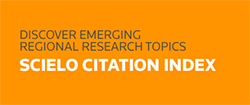Indigenous Peoples’ Rights and Cultural Heritage: Threats and Challenges for a New Model of Heritage Policy
Resumen
The purpose of this article is to analyze the condition of indigenous peoples’ rights in the context of the protection, safeguarding and management of their cultural heritage, especially those elements which have been recognized as of "outstanding universal values" and inscribed on the UNESCO World Heritage List. As the territory of reference I chose Latin American area – the region of significant and dynamic changes in heritage policy and gradual increase in the recognition of indigenous peoples’ cultural rights. I point out the negative aspects of the political appropriation of the cultural heritage (mostly sites and monuments) and the implications of its designation as a World Heritage for indigenous peoples. Referring to the international documents and analyzing the content of the recommendations and reports adopted in recent years by the UN-system, I also try to identify the positive social initiatives and political practices dedicated to the protection, preservation and management of the indigenous peoples’ cultural heritage.
Palabras clave
DOI: http://dx.doi.org/10.22201/cialc.24486914e.2019.68.57064
Enlaces refback
- No hay ningún enlace refback.









